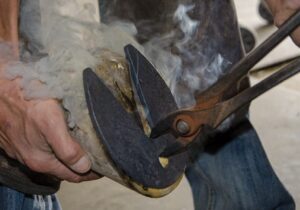A union hack, part time actor and superannuation call taker beat a Brunswick barrister for a federal seat.
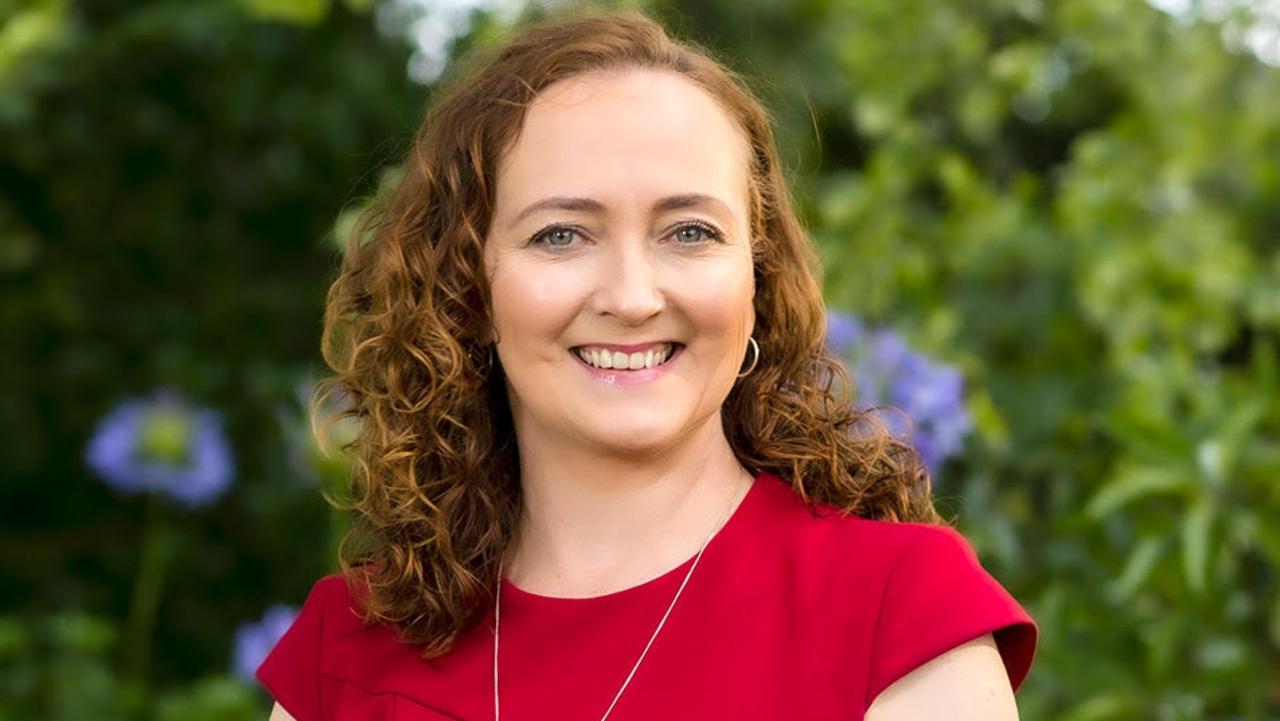
This nasty tweet about the new member for Aston, Mary Doyle, hides an inconvenient truth. One can postulate that when Mary Doyle was pre-selected in 2022 to stand against the then incumbent, Alan Tudge, the seat of Aston would have been considered a safe Liberal seat. In 2019, after preferences, Tudge had won 60 per cent of the vote. In 2022, with Mary Doyle now the Labor candidate, a swing of 7.3 per cent was achieved. Then, with Mary Doyle again as the Labor candidate in this 2023 byelection following the resignation of Tudge, she increased her vote not only winning the byelection but also winning the first byelection for the incumbent government since 1920. In the person-in-the-street parlance: “Mary, you’re a legend!”
Nevertheless, the unpleasant Twitter comment has a grain of truth given that nastiness and arrogance occurs on both sides of the political spectrum. When she was first pre-selected, she was probably awarded the pre-selection on the basis that it was an unwinnable seat. Mary Doyle has become the accidental winner, an ordinary person, a loyal servant of the Labor party who had left school early and whose life epitomises the battle for the vast bulk of Australians wanting to survive. “Ordinary” is not to disparage, but she seems to be a true representative of the people, not an apparatchik coddled through the processes which seem to determine the current batch of successful political aspirants. She seems to be a well-balanced, optimistic person despite her various travails. I hope she does well and retains the “ordinariness” that so often is lacking in the rarefied Canberra atmosphere.
Borough or Burrow?
It was a cold morning when we entered the PikNik café on the Queenscliff Road. It had once been a service station; franchised Golden Fleece, which had fallen on hard times. The Golden Fleece brand in addition no longer exists.
It had been converted into a place where rugged-up local tradies and dog walkers came for their morning shot of caffeine. We had just come off the car ferry, which berthed at Geelong at a time which coincided with the middle of peak road traffic to Melbourne. We had thus arranged to meet a friend, who now lived in Queenscliff, for breakfast. Queenscliff lies almost at the tip of the Bellarine Peninsula, which forms one of the land masses enclosing Port Philip Bay. The Borough of Queenscliffe is a quaint hangover of the times when Victoria had over 200 cities, towns, shires and boroughs. In mediaeval parlance, the borough was a fortified town, and as a description of a local government area, it still remains elsewhere, notably in New York.
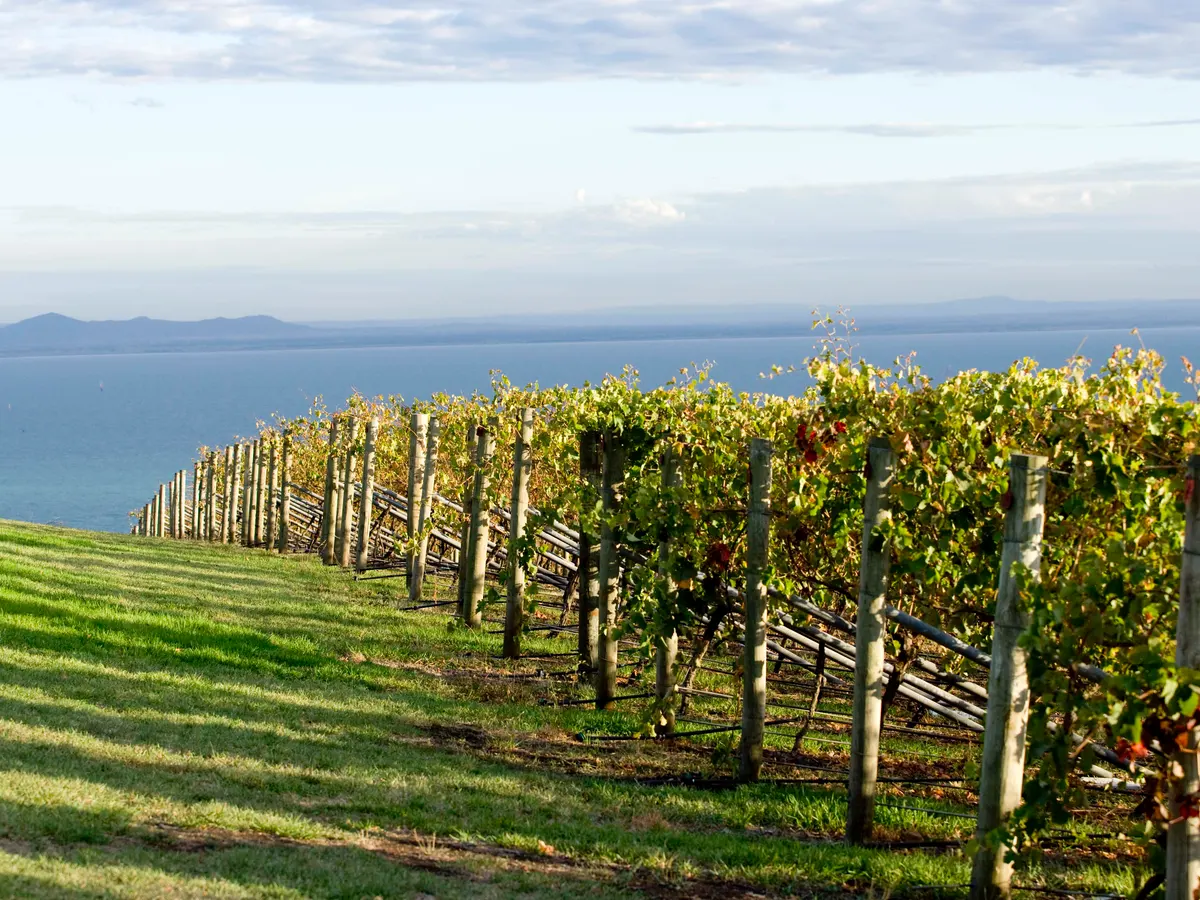
Queenscliff in the Borough of Queenscliffe (note the additional “e”) is a burrow for the conservative elderly retirees, and when the reductions in Victorian local council numbers occurred in the 1990s, the local burghers exhibited their isolationist muscle and persuaded the conservative State Government that they should not be absorbed into the Greater Geelong Council, thus saving the requirement to rub shoulders with those Greater Geelong hoi polloi.
One of Victorian politicians made a very perceptive comment: “The Borough of Queenscliffe has not been included in the proposed amalgamation probably because of the number of elderly retired people in the area. The residents of Portarlington, Drysdale and St Leonards have expressed concern about their rates and the retention of the services that have been provided by the local council, such as nursing, podiatry and other services. Those people are used to the availability of face-to-face services and feel comfortable in a rural setting.”
It reminded me of several decades earlier when I was finishing my Doctorate of Philosophy on some aspects of angiotensin I and angiotensin II in the Monash Department of Medicine. I had a fabulous but challenging time, being supervised by Professor Bryan Hudson whose explosive charisma and glittering eye tended to scare the bejesus out of one; but I ended up on very good terms with him. Nevertheless, I could not see myself as a long-time researcher. Frankly, I was not good enough, and being a mediocre researcher was not where I wanted to be for the rest of my life.
While I was undertaking this PhD, I undertook a Master of Arts (prelim) at the University of Melbourne, where I needed to obtain six subjects at honours level before proceeding to writing a short thesis in order to graduate. It was in those days when university education was free, and I completed the coursework over three years. I had always been keen on the social contribution of health care since I had become “the accidental medical student” before graduating as a doctor. My social and student political agenda, marrying before graduation and my involvement in early childhood education with a working wife and two young children made my twenties a busy time. If I had wanted to undertake public health it would meant decamping to Sydney for a year to gain the appropriate qualification from The University of Sydney through its School of Public Health and Tropical Medicine. In my then situation, impossible.
Nevertheless, my career was never destined to be mentored in any conventional way, and when I searched for a job that would provide the transition into social medicine, there was nothing. Then for some reason, John Lindell, took an interest in me. He had headed the Hospitals and Charities Commission since 1953 and had been an innovative force in the development of Victorian health services. He showed some interest in my desire to change from the laboratory to the community health area.
He raised with me the possibility of setting up what he described as a community health service in Queenscliff. As he said to me, he already had representation from the Borough to set up a health service for the community. There were no specifications, but from my then experience, which included undertaking a multitude of part-time jobs to augment my meagre research fellowship, plus the sociological theory absorbed by my MA prelim, I believed I had the grounding if I had suitable support. Youthful enthusiasm is not enough when confronting a conservative community that wants the resources without any outside interference. John Lindell never pursued my appointment to what was a pilot program, even though I had popped up, seemingly at the right time, willing to set up a pilot program. However, once there was pushback compounded by the negativity of his Deputy, Manny Wilder, he just let the project drop.
This all occurred several years before the development of the community health service concept under the Whitlam government. By that time John Lindell had retired and died. I had moved on, and seemingly the Borough got the services it wanted without having to deal with a pesky neophyte. The above quote from the parliamentary member 20 years later seems to suggest that it had.
I visited John Lindell in hospital when he was dying of cancer. I think he would have liked me to come along earlier, because our resultant association would have been strong enough to assure his vision of the community health centre. One unfortunately can’t alter the calendar of birth and death to assure the right mix of people at the right time to assure change. That conjunction had to wait for later in my career.
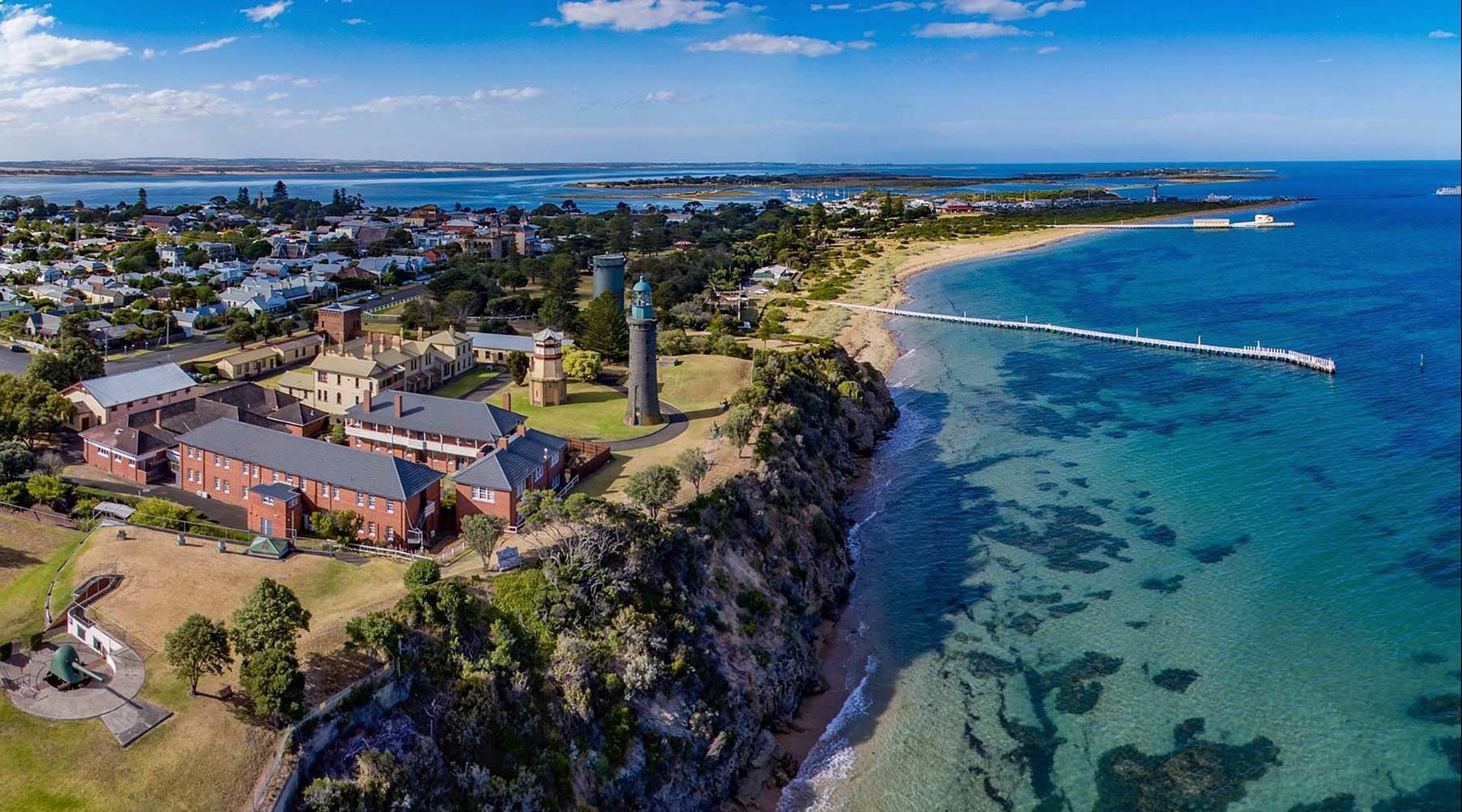
Breakfast at PikNik lasted two hours of warm friendly chat and reminiscence, and the bread bought just before we left was likewise still warm, being freshly baked. I wondered how many times more I would visit the Fortress of Queenscliffe, especially as some eccentric just down the road was promulgating setting up the Republic of “Jimland”. Its sovereignty would be defended presumedly by armoured lawn mowers. Not too far away from the sentiments among some of the burghers of Queenscliffe, I suspect.
Watcher from A Cast Iron Mind
I watched this TV program called Q&A, which I have mostly ignored in the past because it is the megaphone of the self-opinionated who have little to say, aptly described as if “they are reading your own watch”.
 In this episode of Q&A, the discussion between the Aboriginal people exhibited a rising crescendo as they attempted to talk over one another – one stridently anti-Voice, the other pro-Voice. In fact, as the anti-Voice proponent pointed out, the Uluru Statement from the Heart had positioned itself as being that of all Aboriginal people, whereas Uluru was a totem of Walpiri people, who had incidentally not been involved in the development of the statement. This anti-Voice, Jacinta Price, the National Party Senator from the Northern Territory is Walpiri on her mother’s side, giving her a firm base from which to launch her salvoes. Having derided the Uluru Statement, her position was clear, whereas her fellow Senator from the Northern Territory (her land is in the Gulf Country), Malarndirri McCarthy, who represents the ALP, is very pro-Voice; hence the dispute between the two.
In this episode of Q&A, the discussion between the Aboriginal people exhibited a rising crescendo as they attempted to talk over one another – one stridently anti-Voice, the other pro-Voice. In fact, as the anti-Voice proponent pointed out, the Uluru Statement from the Heart had positioned itself as being that of all Aboriginal people, whereas Uluru was a totem of Walpiri people, who had incidentally not been involved in the development of the statement. This anti-Voice, Jacinta Price, the National Party Senator from the Northern Territory is Walpiri on her mother’s side, giving her a firm base from which to launch her salvoes. Having derided the Uluru Statement, her position was clear, whereas her fellow Senator from the Northern Territory (her land is in the Gulf Country), Malarndirri McCarthy, who represents the ALP, is very pro-Voice; hence the dispute between the two.
Listening to the competing voices reminded one of the disputes within Aboriginal medical services. At one moment one family would be in charge of the finances of a particular service and then that family was displaced by another family, both members of the same mob, the downside of that rivalry providing a lack of continuity with each family having different priorities. This does not help in maintaining staff. Aboriginal medical services do not generally have after hours service nor are open on weekends and public holidays. Disputation among Aboriginal people means that any Voice may not be a unitary force once it goes beyond this pre-referendum oratory.
A recent report among the authors of which were Aboriginal professionals, concluded in relation to the health of Aboriginal people thus: Unfortunately, the Government’s 2020 report card on Closing the Gap progress showed that life expectancy for Indigenous people, and the Indigenous life expectancy gap, have improved only slightly, and outcomes lag behind targets. Strong Indigenous voices are concerned that increased research funding and volume alone will not address this disparity without a corresponding broadening of intellectual investment in Indigenous health. This intellectual investment involves a shift in focus to self-determination, Indigenous-led research, community consultation, and research into the actual causes of ill-health, including racism and other social determinants of health.
Unravelling the learned article speak – nothing much has happened. This financial year, the Federal Government is committing $284.3m with the Ministerial anodyne: The Albanese Labor Government is continuing to work in partnership with the Coalition of Peaks, other First Nations partners and all levels of government to ensure sustained progress over the life of the National Agreement on Closing the Gap. The dissonance in full writ is very clear between the two quotes. Obviously quotes can be cherry-picked, but these Aboriginal paradoxes have always worried me from the time I first became involved sitting around the campfire outside old Parliament House yarning with Charlie Perkins in 1973.
Another matter which troubles me is where the tribal elders fit within the Voice. The elders are of paramount importance in a people where there is only an oral tradition to assure passage of tradition. I have witnessed on many occasions the difficulty of passing on the lore with all its complexity so distinctive for any particular mob, to the younger generation.
My experience itself was a generation ago, but I would like to know how the “Voice” takes into account the differentiated men’s and women’s business. I remember being in the mid-west of Western Australia in the late 1970s, in a one-on-one meeting, an elder of a mob spontaneously asked if I would like to see a couple of things that he had at hand. He said very little as he showed them, his voice monosyllabic. When I saw them, I must say that I have never seen the like again. This was men’s business; I was very privileged, the extent of which took me years to realise. I may have talked about what I had seen, but not in print. I continue to respect that insight; but where does that fit within the Voice. In what appears to be a secular Voice where does the spiritual Voice fit, given that here there is not “One Nation” if the map is to be believed. There is just too much jargon to cover the unexplained; or unexplainable.

A further matter, which again raises questions, is that in traditional settings there is so much non-verbal communication. As I once said, communicating with Aboriginal people means being able to talk through the silences. The experience I’ll never forget was talking to a group of traditional Aboriginal people, and the sense of the non-verbal response I experienced from the audience, none of them announced who was who, but I detected who was “the elder among elders” and at the end of my talk, he said “bloody good meeting, let’s go and have a cuppa”. That was that. I had experienced the Aboriginal Voice.
My trouble with many of the proponents of the Voice is that they are “stateless”. The spiritual heritage of their tribes has been exterminated, and therefore they are faced with having to trying to concoct a lost oral tradition. It makes the symbolism of the Voice difficult to not only explain but also to justify.
It is over 20 years since I undertook the Rural Stocktake. It exposed me to various aspects of Aboriginal culture, including as it related to who is Aboriginal. I was able to cut through some of the cultural blocks between myself, the “whitefella” and the “blackfella”, such that I had two who called me “brother”.
Therefore, given my exposure to Aboriginal bureaucracy which belies the oral tradition, I am concerned the Voice will continue to be just a flurry of words, full of fine oral argot but meaning nothing in improving the overall condition of the Aboriginal people. I have seen too much of the failure to improve the condition of Aboriginal people despite the accompanying rhetoric to be sanguine.
Finally, Noel Pearson has somewhat bombastically declaimed saying that if the referendum fails, he will fall silent. We whitefellas have a word for that – “sulking”! There is enough juvenile behaviour from the reactionary forces without having a proclamation like that, Mr Pearson.
Lunch on the Oregon Coast
The Oregon Pacific Coast is rugged, varied and, in parts, has quite beautiful beaches, so for an Australian used to living near the sea, one could be forgiven for being blasé. We stayed at Cannon Beach, and one beautiful autumn day, we drove down the coast, and when the lunch stomach rumbles intervened, we sought out a place to eat along the ocean road. We stumbled upon a small settlement called Netarts. We had no idea of the importance of this little place as we plonked ourselves down inside the Schooner café, there being no room outside on the terrace. We accustomed ourselves of the view over the estuarine Netarts Bay. Little did we know at the time that the bay was one of the major breeding nurseries for Pacific oysters.
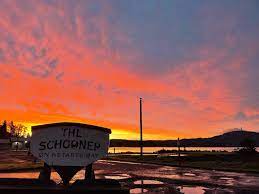
The native Olympia oysters had long been fished to near extinction, and although tentative work was being done, they were not commercially available; but the Pacific oysters which I ordered were the plumpest I have ever eaten without losing a scintilla of taste. Those oysters remain my yardstick for Pacific oysters. Following the oysters, I ordered the Columbia River Steelhead trout, which was cooked in a cast iron skillet. This whole trout had both crispness and an underlining delicious flavour of wild white flesh. Both courses joined my gustatory memory bank. My wife had very small octopus with an admixture of capers, garlic, rosemary and char-grilled lemon. It was a memorable lunch, made even more so because it was so unplanned.
Definition of Obscenity – Washington Post Nuanced
As background to the newspaper report below, the Tennessee 5th Congressional District was one of the most closely watched of the election season because the Republican-dominated state legislature redrew the seat in 2022 during the redistricting cycle, “flipping it” from a Democratic-held seat to Republican, so that it was unwinnable for the Democrats. The District is now shaped like a person on the run. Nashville had been traditionally totally Democratic until this redistribution. There is now only one Democrat representative from Tennessee from an electoral district around Memphis.
Representative Andrew Ogles, a Republican who represents this Nashville district where the Covenant School is located, said in a statement that he was “utterly heartbroken” by the shooting there that left six people dead, including three children.
Gun-control advocates and Democrats highlighted another post from Ogles — a 2021 Christmas photo of his family posing with firearms.
After news of the Nashville shooting broke, Ogles said in a statement that he and his family “are devastated by the tragedy that took place at The Covenant School in Nashville this morning.”
“We are sending our thoughts and prayers to the families of those lost,” he said. “As a father of three, I am utterly heartbroken by this senseless act of violence. I am closely monitoring the situation and working with local officials.”

The 2021 photo, which Ogles shared on Facebook, showed him, his wife, and two of his three children holding weapons and smiling in front of a Christmas tree.
“MERRY CHRISTMAS!” Ogles wrote, adding a line that is often — and dubiously — credited to George Washington: “The very atmosphere of firearms anywhere and everywhere restrains evil interference — they deserve a place of honor with all that’s good.”
Ogles is a strong proponent of the Second Amendment and gun ownership. On his campaign website, he said: “Disarming the people is the most effective way to enslave them, and we must remain vigilant when anyone seeks to erode our civil liberties. The rights of the people to keep and bear arms, protect themselves and their families, and prevent tyrannical rule is a fundamental liberty of our constitutional republic.”
Ogles is really a disgusting piece of work, so beware reading his Wikipedia entry. Sewage is everywhere in this entry.
Mouse Whisper
You learn stuff sometimes by not being satisfied with just accepting the name in this case of a racehorse. Many of the names are stupid concoctions, meaningless jumbles of letters, but since my Italian cousin Garibaldi was staying with me and we were sharing an excellent pecorino, the racing guide had slipped on the floor, and my eye alighted on a horse named “Bianco Vilano”. Garibaldi scratched his ear. “Vilano? Vilano – no. there is an Italian word, villano meaning “lout” or “oaf”. But vilano with one “l”? “Bianco” is white. I looked the name up on Mickipedia. For “bianco vilano” read the whorl of sepals of a flower collectively forming the outer floral envelope or layer of the perianth enclosing and supporting the developing bud; I must say I was none the wiser. Then the meaning paraglided in on the breeze – you mean Thistledown.


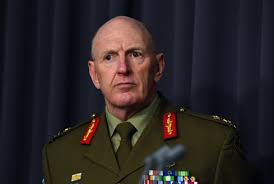
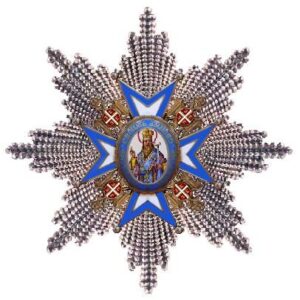
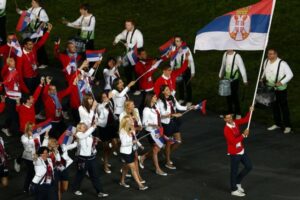
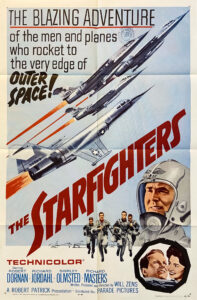 The Chief, having recovered from the initial surprise, had reached into his pocket in a studied way to produce his pipe and tobacco pouch. It was his reaction to what he saw as evidence of American bravado. By this time, the deck had filled with a few more passengers wondering what on earth was happening.
The Chief, having recovered from the initial surprise, had reached into his pocket in a studied way to produce his pipe and tobacco pouch. It was his reaction to what he saw as evidence of American bravado. By this time, the deck had filled with a few more passengers wondering what on earth was happening.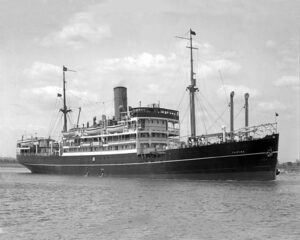
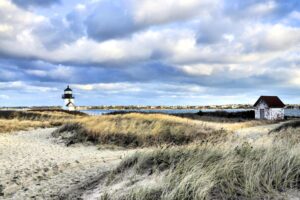
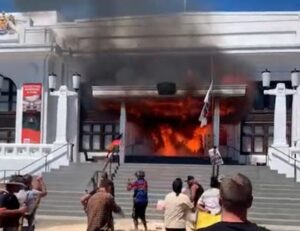 One could argue the tent embassy outside Old Parliament House has outlived its time. I was there, sitting around the campfire with Charlie Perkins in 1973, outside Parliament House. Charlie was not short on being able to handle the media. Ever since he had been involved in the Freedom Rides in the 1960s in country NSW, Charles had been very much the face of Aboriginal activism. He was brilliant in his use of symbolism, and the simple campfire outside Parliament House emphasised very much the traditional myth of Australian egalitarianism – mateship.
One could argue the tent embassy outside Old Parliament House has outlived its time. I was there, sitting around the campfire with Charlie Perkins in 1973, outside Parliament House. Charlie was not short on being able to handle the media. Ever since he had been involved in the Freedom Rides in the 1960s in country NSW, Charles had been very much the face of Aboriginal activism. He was brilliant in his use of symbolism, and the simple campfire outside Parliament House emphasised very much the traditional myth of Australian egalitarianism – mateship.